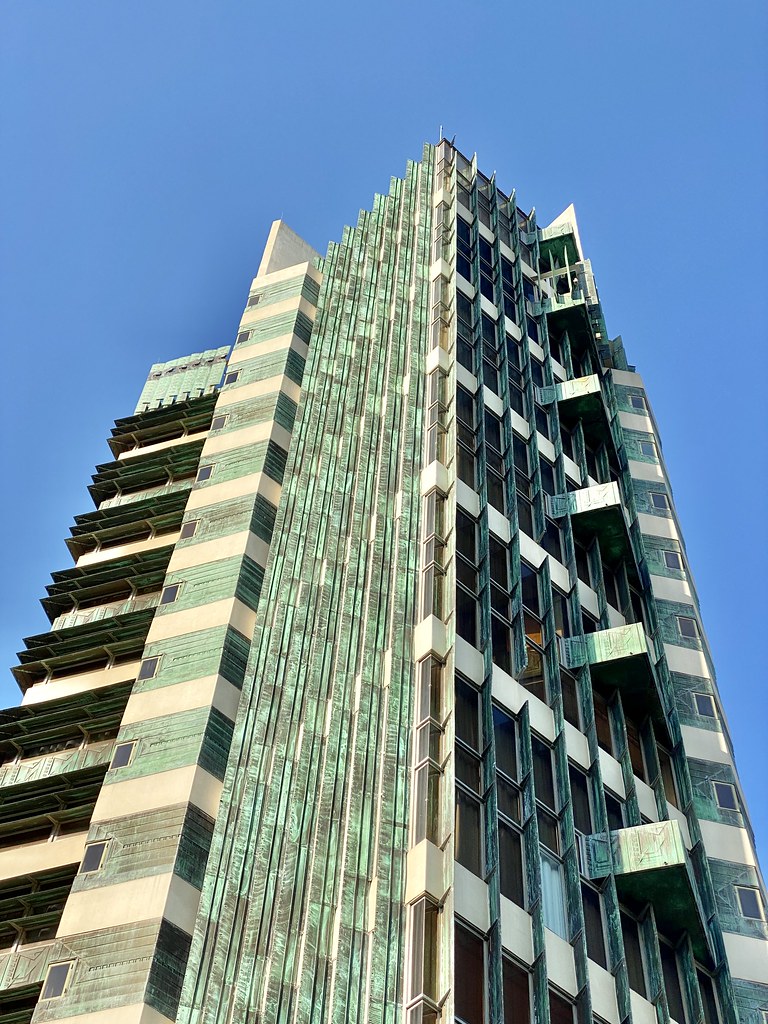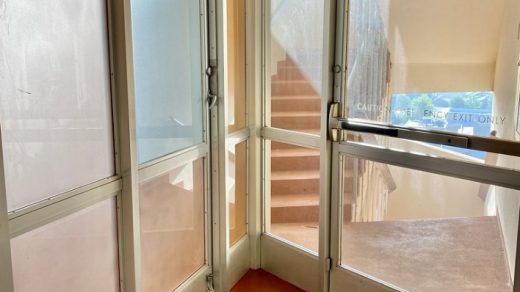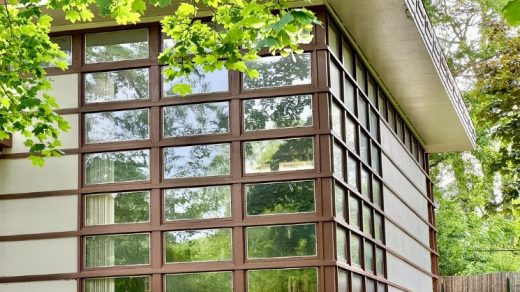Factors Affecting Carport Prices
Carport prices can vary significantly based on a range of factors that influence the overall cost. These factors include the size and design of the carport, the materials used in construction, and the level of customization desired. Additionally, location, labor costs, and the complexity of installation can also play a crucial role in determining the final price. Understanding these elements is essential for selecting a carport that fits your budget and meets your needs.
Materials Used
The cost of a carport can be influenced by several factors, including the materials used, size, design complexity, and additional features. Materials such as steel, aluminum, wood, and vinyl each have different price points, with steel generally being more durable and costly than aluminum or wood. The size of the carport, including its width and height, directly impacts the amount of materials needed and thus affects the overall price. More intricate designs or customizations, such as decorative elements or integrated storage, can also increase costs. Additionally, the quality of materials and the level of labor required for installation play a significant role in determining the final price of a carport. Ultimately, choosing premium materials or complex designs will typically result in higher costs compared to basic, standard models.
Size and Dimensions
Carport prices are influenced by various factors related to size and dimensions, which directly affect overall cost. Larger carports generally require more materials, increasing material expenses and labor costs. The width, length, and height determine the amount of structural components needed, with more expansive designs being more expensive. Additionally, the complexity of the design and customization options, such as additional storage, roofing style, or roofing material, can also impact prices. Choosing higher-quality or more durable materials for larger or more intricate structures will further add to the total cost. Ultimately, understanding these factors helps in estimating the budget needed for a suitable carport that meets your size and dimension requirements.
Design and Style
Several factors influence the prices, design, and style of carports, making customization and budget considerations essential when planning a project. The material used for construction, such as metal, wood, or vinyl, significantly impacts both cost and appearance, with premium materials generally increasing expenses but offering enhanced durability and aesthetics. The size of the carport, including width, length, and height, directly affects the overall price, as larger structures require more materials and labor. Design complexity also plays a role; simple, open-sided designs tend to be more affordable, while elaborate styles with additional features like sidewalls or decorative elements increase costs. The choice of style—from traditional, modern, to custom designs—can reflect personal preference but may involve higher expenses depending on intricacy and craftsmanship. Local building codes and permits can add to the cost and influence design options, while additional features such as roofing materials, insulation, or integrated lighting further affect pricing. Budget awareness and planning should consider how these factors interact to achieve the desired balance between affordability, aesthetics, and functionality in a carport project.
Location and Installation Site
Location and installation site are significant factors influencing carport prices. The geographic area can affect shipping costs, vendor pricing, and material availability, with urban areas often incurring higher expenses due to increased demand and logistical challenges. Additionally, the specific site where the carport will be installed impacts costs; uneven terrain, slope, or limited space may require additional groundwork, leveling, or custom modifications, which can increase overall expenses. Accessibility to the site also plays a role, as difficult-to-reach locations may require specialized equipment or extra labor, further affecting the final price. Considering these factors ensures a more accurate estimate and helps in planning a cost-effective carport solution.
Additional Features and Customization
The cost of a carport can vary significantly based on several factors, including the size, material, and complexity of the design. Larger carports require more materials and labor, which naturally increases the price. The choice of materials, such as wood, metal, or composite, also influences the overall cost, with some materials being more durable and expensive than others. Additionally, the region or supplier can affect pricing due to varying labor costs and availability.
Additional features and customization options play a crucial role in determining the final price of a carport. Features such as built-in storage, side panels, or personalized roofing styles can add to the overall expense. Customization, like specific color schemes, unique architectural designs, or tailored dimensions, often comes at a premium. These options enable homeowners to create a carport that better fits their aesthetic preferences and functional needs but also increase the investment required.
Types of Carports and Price Ranges
Carports come in a variety of styles and materials, each offering different levels of protection and aesthetic appeal. Understanding the various types of carports and their associated price ranges can help you make an informed decision that fits your budget and needs. From basic metal shelters to custom-built wooden structures, the options are diverse and cater to different preferences and financial considerations.
Temporary Carports
There are various types of carports available, each suited to different needs and budgets. Permanent carports are typically made from durable materials like steel or wood and provide long-term protection for your vehicle. These can range in price from $1,500 to $5,000 depending on size and materials used. Portable or temporary carports are more affordable and easy to assemble or move, often costing between $200 and $1,000. These are ideal for seasonal use or temporary shelter. The price for permanent carports varies widely based on the complexity of the design, size, and material quality, while temporary carports are generally more budget-friendly but offer less durability. When considering carport prices, it’s important to evaluate your specific needs, whether you need a sturdy, permanent solution or a flexible, temporary shelter.
Permanent Carports
Permanent carports are a popular choice for homeowners seeking durable and long-lasting protection for their vehicles. They come in various types, each suited to different needs and budgets. Fixed carports are typically constructed from sturdy materials like steel, wood, or aluminum, providing excellent durability and security. They can be customized in size and design to match the aesthetic of your home. Conversely, some permanent carports feature more elaborate roofing options, such as metal panels, tiles, or shingles, which can influence the overall cost.
Price ranges for permanent carports vary widely based on size, materials, and complexity of design. Basic aluminum or steel carports with simple designs can start at approximately $1,500 to $3,000 for small to medium sizes. More elaborate or larger structures made from premium materials, including customized designs or reinforced frames, can range from $5,000 to over $15,000. Installation costs are typically included in the quote, but it’s essential to consider additional expenses such as foundation preparation or integration with existing structures. Overall, investing in a permanent carport offers long-term value through increased protection and enhanced property appeal.
Attached vs. Detached Carports
When considering carport prices, it’s important to understand the different types and configurations available. There are generally three main types of carports: freestanding, attached, and portable. Each offers specific benefits and varies in cost depending on materials and size. Attached carports are built directly onto a building, providing seamless coverage and often more convenience, whereas detached carports are standalone structures that offer flexibility in placement. Price ranges can vary widely: basic metal attached carports might start around $1,500, while larger, custom-designed detached models can reach $10,000 or more. Factors such as material choice, size, and complexity of design largely influence the overall cost of a carport.
Metal Carports
When considering carport options, there are various types and price ranges to suit different needs and budgets. Metal carports are among the most popular choices due to their durability and affordability. Concrete carports tend to be more permanent and costlier, while fabric or canopy carports are more budget-friendly but less durable. Metal carports typically range from $1,000 to $5,000 depending on size, features, and quality. Smaller, basic metal carports are on the lower end of the spectrum, whereas larger, reinforced structures with optional features like sides or insulation fall into the higher price range. Overall, metal carports offer a cost-effective solution that balances durability with reasonable pricing, making them a preferred option for many homeowners.
Wooden Carports
Wooden carports are a popular choice for their aesthetic appeal and natural look, offering a versatile option for protecting your vehicle. There are various types of carports, each suited to different needs and preferences. Standard freestanding carports are simple structures that can be placed anywhere on your property, while attached carports connect directly to your home for convenience. Customized wooden carports can be designed to match your home’s style and provide additional storage or shelter. The price range for wooden carports typically varies based on size, design complexity, and quality of materials, generally falling between $1,500 and $10,000. Basic models are usually on the lower end of the spectrum, while high-end, custom-built wooden carports with premium materials and intricate designs tend to cost more. When considering a wooden carport, it’s important to balance your budget with durability, style, and functionality to find the best option for your needs.
All-Weather Carports
Carports come in various types and materials, each suited to different needs and budgets. The most common types include attached carports, which are connected to the main structure of a home, and detached carports, which stand alone in the driveway or yard. Materials range from metal, wood, to vinyl, each offering different levels of durability and aesthetic appeal. All-weather carports are designed to withstand diverse weather conditions, providing reliable protection for vehicles year-round. Their construction typically involves sturdy roofing and durable supports to resist snow, rain, and wind. Price ranges for carports vary significantly based on size, material, construction complexity, and features, generally starting from a few hundred dollars for basic models to several thousand dollars for custom or premium options. All-weather carports tend to be on the higher end of the price spectrum due to their enhanced durability and weather resistance. Overall, investing in a quality carport can protect your vehicle while adding value to your property, with options available to suit various budgets and needs.
Average Price Estimates
Average price estimates provide valuable insights for those considering the installation of a carport. Understanding the typical costs involved helps homeowners and buyers plan their budgets effectively. By examining current market trends and material options, they can make informed decisions that align with their needs and financial considerations.

Basic Single Carport
The average price estimate for a basic single carport typically ranges from $2,000 to $5,000, depending on materials, size, and installation requirements. Factors such as roof design, roofing materials, and additional features can influence the overall cost. Standard models made from materials like steel or wood tend to be more affordable, while customized designs or durable roofing options may increase the price. It’s important to consider both the initial installation costs and any potential maintenance expenses when budgeting for a carport. Consulting with local suppliers and contractors can help determine the best options suited to your specific needs and preferences.
Multiple Car Carports
Average price estimates for multiple car carports vary depending on size, materials, and installation complexity. Typically, a basic metal carport for two cars can cost between 2,000 and 4,000 dollars. Larger structures or those with premium materials, such as custom designs or reinforced steel, may range from 5,000 to 10,000 dollars or more. It is important to consider additional costs like permits, site preparation, and installation when budgeting for a carport project. Comparing different providers and requesting detailed quotes can help ensure you find a solution that fits your needs and budget.
Luxury or Custom Carports
Luxury or custom carports usually come with higher price estimates due to their bespoke designs, premium materials, and additional features. On average, these high-end structures can range from $10,000 to $30,000 or more, depending on size, complexity, and customization options. Standard carports tend to be more affordable, typically costing between $2,000 and $5,000. When opting for a luxury or custom carport, it’s essential to consider not only the initial investment but also the long-term value and durability offered by premium materials and craftsmanship.
DIY vs. Professional Installation Costs
When considering carport prices, it’s important to understand the differences between DIY and professional installation costs. DIY options typically offer lower upfront expenses, as only the cost of materials is needed, often ranging from a few hundred to a couple of thousand dollars depending on size and materials. However, this approach requires time, skills, and tools, which may lead to unforeseen expenses or issues if not executed properly. On the other hand, professional installation usually guarantees a higher quality result and greater durability, but it comes with additional labor fees. Professional carport installation can range from 1,500 to over 5,000 dollars, depending on the size, design complexity, and location. Weighing these factors can help you determine the most cost-effective and suitable option for your needs and budget.
Additional Costs to Consider
When budgeting for a carport, it’s important to consider additional costs beyond the basic price. These expenses can impact the overall affordability and help you plan a more accurate budget. Understanding potential extra charges ensures there are no surprises during the purchasing process, allowing you to make informed decisions about your carport investment.
Permits and Regulations
When evaluating carport prices, it is important to consider additional costs related to permits and regulations. Many municipalities require building permits for new structures, which can add to the overall expense. These permits ensure that the carport complies with local safety standards, zoning laws, and building codes. Failing to obtain necessary approvals may result in fines or the need to modify or remove the structure. Additionally, certain areas may have restrictions on the size, materials, or placement of the carport, influencing both the design and cost. Consulting with local authorities beforehand can help clarify the regulations and avoid unexpected expenses, making it easier to budget accurately for your project.
Foundation and Ground Preparation
When estimating the total cost of a carport, it’s important to consider additional expenses related to foundation and ground preparation. Proper foundation work ensures the carport remains stable and durable over time, preventing issues like shifting or sinking. Ground preparation may involve leveling the site, removing existing vegetation, or adding gravel or concrete to create a solid base. These preparations can significantly impact the overall budget, especially if the site requires extensive work or specialized materials. Planning for these costs early helps avoid unexpected expenses during construction and guarantees a safe, long-lasting structure.
Maintenance and Upkeep
When evaluating carport prices, it’s important to consider the additional costs associated with maintenance and upkeep. Regular inspections and cleaning are necessary to prevent damage from weather elements, which can add to ongoing expenses. Depending on the material used—such as wood, metal, or vinyl—maintenance requirements can vary significantly. Wooden carports may require periodic treatments or sealing to protect against moisture and pests, while metal structures might need rustproofing or repainting over time. Additionally, you should factor in potential repair costs for any structural issues or damage caused by storms or accidents. Proper maintenance not only prolongs the lifespan of the carport but also ensures its safety and aesthetic appeal, contributing to the overall investment in your property.
Future Upgrades and Extensions
When budgeting for a carport, it’s important to consider additional costs beyond the base price. These may include permits and zoning fees, foundation or concrete work, electrical connections, and materials for customization such as siding or roofing. Planning for these expenses ensures there are no surprises during installation.
Future upgrades and extensions can also impact your initial investment. You might want to add storage options, side walls, or lighting features later on. Choosing a versatile design from the beginning can make future modifications easier and more cost-effective, helping you adapt your carport to evolving needs and preferences over time.
Where to Find Affordable Carport Options
Looking for affordable carport options can be a smart way to protect your vehicle without overspending. Finding cost-effective solutions involves exploring various sources such as local stores, online retailers, and DIY options. By researching different materials, styles, and providers, you can discover quality carports that fit your budget and meet your needs.
Online Retailers and Suppliers
Finding affordable carport options involves exploring various online retailers and suppliers that offer budget-friendly prices without compromising quality. Many online platforms provide a wide selection of carports, making it easier to compare prices and choose the best deal for your needs.
- Home Depot and Lowe’s: Both major home improvement stores have online portals with a variety of carports at competitive prices, often offering discounts and seasonal deals.
- Wayfair: Known for home furnishings, Wayfair also features a range of outdoor carports and portable shelters, often at discounted rates.
- Amazon: Offers countless options from different sellers, allowing you to compare prices, read reviews, and find affordable, durable carports suitable for different budgets.
- Overstock: Specializes in discounted outdoor structures, including carports and garages, providing affordable options for various size and material preferences.
- ALDI or local online classifieds: Sometimes local suppliers list new or gently used carports at significantly reduced prices, perfect for budget-conscious buyers.
Always consider shipping costs, material quality, and customer reviews when choosing an online supplier to ensure you get the best price and value for your money.
Local Contractors and Builders
Finding affordable carport options requires exploring local contractors and builders who offer competitive prices without compromising quality. Start by doing online research to identify reputable providers in your area, and check reviews to gauge customer satisfaction. Visiting local hardware stores or home improvement centers can also give you recommendations for trusted installers. Attending community home shows or expos may provide opportunities to compare different contractors and receive special discounts. Additionally, requesting multiple quotes from different local professionals helps ensure you get the best value within your budget. Remember to consider the materials used and the customization options available, as these can significantly impact the overall cost of your carport project.
Prefabricated Kits vs. Custom Builds
When searching for affordable carport options, it’s important to consider the differences between prefabricated kits and custom builds. Prefabricated kits are typically more budget-friendly, offering quick installation and cost-effective materials. Custom builds, while more personalized, tend to be more expensive due to tailored design and labor costs. Your choice depends on your budget, desired design, and timeline.
- Prefabricated Kits: These are pre-made structures available at many home improvement stores or online retailers. They often come with DIY assembly instructions, making them suitable for those looking to save money and install the carport themselves.
- Custom Builds: These are designed specifically for your property and aesthetic preferences. Although more costly, they can offer better durability, design flexibility, and integration with your home’s architecture.
To find affordable options, compare prices from local suppliers, explore online marketplaces, and consider seasonal discounts. Sometimes, choosing a simple design or smaller size can significantly reduce costs while still providing the necessary protection for your vehicle.
Seasonal Promotions and Discounts
Finding affordable carport options can be a seamless process when you know where to look. Start by exploring online retailers and manufacturer websites, which often offer competitive prices and promotions. Local home improvement stores and specialty covered structure suppliers are also great sources for budget-friendly options and personalized service. Don’t forget to check for seasonal promotions or discounts, typically available during major holidays, end-of-season clearance sales, or promotional events. Signing up for newsletters from these retailers can keep you informed about upcoming deals and exclusive discounts. Additionally, considering ready-made or modular carports can provide cost savings without sacrificing quality. Comparing prices across different vendors and taking advantage of package deals or bundled discounts can further help you find an affordable carport that fits your budget.


